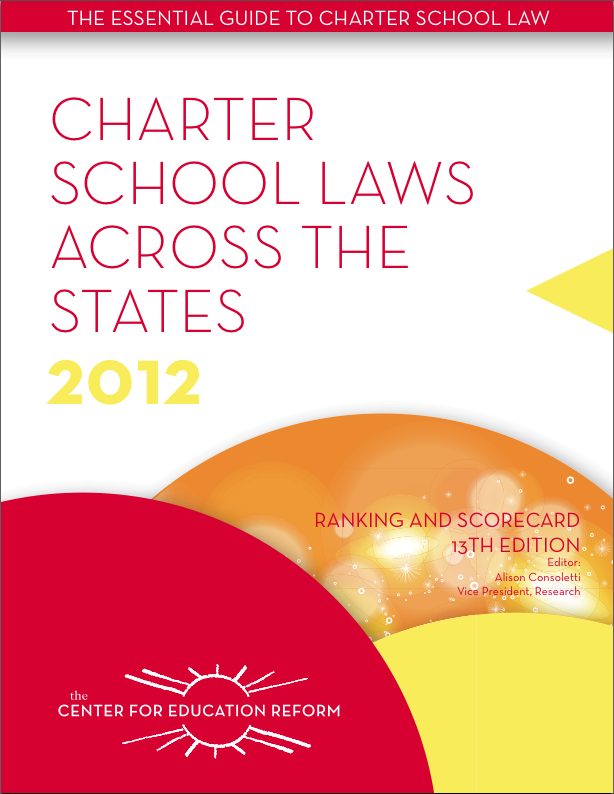The Essential Guide to Charter School Law provides path to excellence
CER Press Release
Washington, DC
April 2, 2012
The wide variations in charter school laws state by state average out to a grade in need of improvement, according to The Essential Guide to Charter School Law by the Center for Education Reform. In its 13th annual analysis of laws across the states, CER, the leading advocate for substantive and structural change in US education, documents the conditions for effective laws that support the growth and success of these proven models of public schooling.
“Charter schools — public schools, open by choice, accountable for results and free from most rules and regulations that stifle progress in traditional schools — are permitted in 41 states and the District of Columbia, and yet the conditions for success in those states compromise the availability of great new public schools that parents and students most need and deserve,” said CER President Jeanne Allen. “While some state laws are still as great as intended when they were created, many states, just like schools that complain they are forced to ‘teach to the test’ rather than deliver exceptional education, have just gone through the motions, passing laws that give very little life to charter school reforms.”
The 2012 report analyzes each law against nationally recognized benchmarks that most closely dictate the impact of charter school policies on healthy, sustainable charter schools. Components such as the creation of multiple independent authorizers and fiscal equity can transform a state’s educational culture. States that do so include Washington, DC, Minnesota and Indiana. The lack of components that ensure operational freedom, equity and alternate paths to authorizing limits charter progress and often leads to contentious charter battles. States such as Virginia and Georgia are notable in this category.
The US GPA of 2.1 -a ‘C’ – on state charter school laws is a result of states having earned five A grades, nine Bs, seventeen Cs, seven Ds and four Fs. Categories ranked include: the existence of multiple independent authorizers, number of schools allowed, operational autonomy, and fiscal equity when compared to their conventional public school peers.
“This should be a wake up call to everyone from reformers to the President. Just having a law is not even half the battle,” writes Allen in the report’s introduction. “Knowing how to understand a law and implement it is the most essential act anyone engaged in lawmaking will ever undertake, and this report is for and about the hundreds of local, state and national policymakers whose pens and keyboards create the laws that can transform — or erect barriers to — true educational progress for all children.”
An online press briefing on the report’s findings will be held Monday, April 2nd at 1:30p EST. The briefing can be accessed here.
DOWNLOAD: Charter School Laws Across the States 2012 – The Essential Guide to Charter School Law


